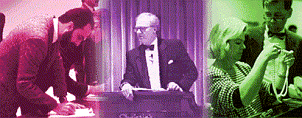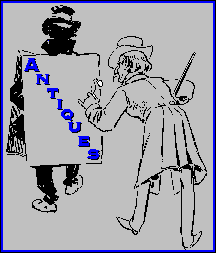"Most collectors will do anything to keep their things, but a few view their furniture the same way dealers do--less as objects in permanent residence than as capital. Some buy their things with a view to making a profit, and have no trouble selling should they need to."
exchange

Things change hands and homes for so many reasons...somebody needs quick cash, somebody else can't stand the sight of an old junky thing hanging around the house one minute longer.
Old objects are ones with a history of possession. Whether or not this possession shows in the object's surface and form can mean a great deal to the monetary value of the object. Thousands of dollars, sometimes.
On the other hand, marks can be like signatures. The scratches, dings and dents we make on objects show that we have been around them, have lived with them. Painting and decorating objects says even more about how we imagine these objects to fit into our surroundings, as well as how we want them to represent our tastes, preferences, tendencies.
Do some objects contain a monetary value in them so that we can never look at them, use them, dent them without thinking of their potential market price and how such use might affect it? Does cherishing an object--treating it with special care and telling stories about its special past and secured present--also mark it in a way?

perspective